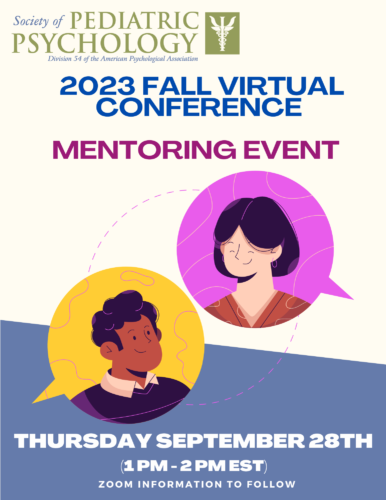2023 Fall Virtual Conference
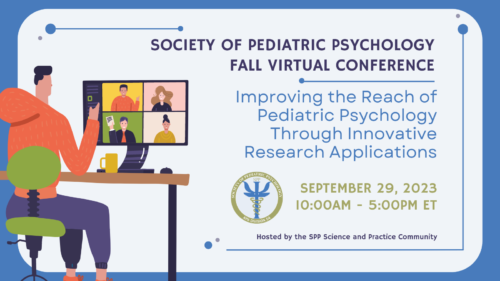
Thank you for Attending!
September 29, 2023 | 10:00 - 5:00pm ET
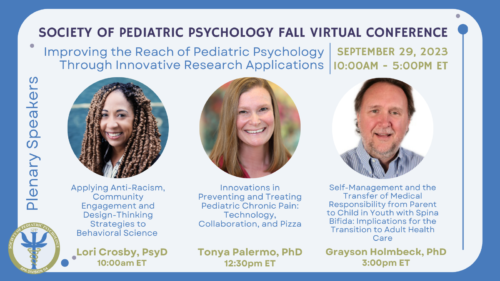
Plenary Speakers
Lori Crosby, PsyD; Tonya Palermo, PhD; Grayson Holmbeck, PhD
Improving the Reach of Pediatric Psychology Through Innovative Research Applications
FRIDAY, SEPTEMBER 29, 2023
10AM-12PM EST/ 12:30PM-2:30PM EST / 3PM-5PM EST
Thank you for attending our second annual SPP Fall Virtual Conference on Friday, September 29, 2023! This year’s conference theme centers on “Improving the Reach of Pediatric Psychology Through Innovative Research Applications.”
This is a one-day conference that includes: three 2-hour sessions (each including a plenary speaker followed by 2 symposia speakers). Sessions will be hosted at 10am ET, 12:30pm ET, and 3pm ET. Each session provides 2 CEs (total of 6 CEs).
$60 member fee for each 2-hour block. $80 non-member fee for each 2-hour block ($20 Discount for those who attend whole conference); Student fee of $30 for the full conference.
Don’t miss out on:
* Learning about high impact areas of pediatric psychology research produced by SPP research leaders who come from diverse research backgrounds such as assessment, treatment and interventions, clinical outcomes, adherence, and health disparities.
* Discussion Forum of current research directions and to consider how research informs clinical practice, service delivery, health equity, policy decisions.
* SPP members to build research networks and connections across all SPP member levels, trainee through senior career scientist-practitioners.
Invited Speakers:
* Lori Crosby, PsyD - Applying Anti-Racism, Community Engagement and Design-Thinking Strategies to Behavioral Science
* Tonya Palermo, PhD - Innovations in Preventing and Treating Pediatric Chronic Pain: Technology Collaboration, and Pizza
*Grayson Holmbeck, PhD - Self-Management and the Transfer of Medical Responsibility from Parent to Child with Spina Bifdea: Implications for the Transition to Adult Health Care
Continuing Education: 6.0 CEs
6 CE credits are available to licensed psychologists who attend the full conference, 4.0 CE credits available to licensed psychologists who attend two 2-hour sessions, 2.0 CE credits available to licensed psychologists who attend one 2-hour session. The Society of Pediatric Psychology (Division 54 of the American Psychological Association) is approved by the American Psychological Association to sponsor continuing education for psychologists. The Society of Pediatric Psychology maintains responsibility for this program and its contents.
If you have questions about the conference program, please contact the conference chairs:
Alyssa Schlenz, Ph.D, VFC 2023 Chair: Alyssa.Schlenz@childrenscolorado.org
Allison A. Stiles, Ph.D, VFC 2023 Co-Chair: Allison_Stiles@URMC.Rochester.edu
An initiative of the Society of Pediatric Psychology Science & Practice Committee:
Sukhpreet K. Tamana, Alyssa Schlenz, Allison A. Stiles, Chad Jensen, Diane Chen, Sunnye Mayes, Katherine Darling, Naadira Upshaw, and Lauren Harrison.
2023 Fall Virtual Conference Registration Fees
| 1 Session | 2 Sessions | Full Sessions | |
| Member | $60 | $120 | $160 |
| Non-Member | $80 | $160 | $220 |
| Student Member | $10 | $10 | $10 |
| Student Non-Member | $20 | $20 | $20 |
| Community Participant | $20 | $20 | $20 |
Session 1: 10:00am -12:00pm
Applying Anti-Racism, Community Engagement and Design-Thinking Strategies to Behavioral Science Lori Crosby, PsyD
10:00am - 11:00am
Lori E. Crosby, PsyD, is a Professor in the Division of Behavioral Medicine and Clinical Psychology at Cincinnati Children’s Hospital Medical Center and Department of Pediatrics at the University of Cincinnati, College of Medicine. She is also Director of the Cincinnati Center for Clinical and Translational Science (CTSA) Community Engagement Core, Co-Director of Faculty Diversity, Equity, and Inclusion, directs a research program in pediatric sickle cell disease, and is Co-Director of INNOVATIONS in Community Research and Program Evaluation. Dr. Crosby has been a Principal/Co-Investigator or Consultant on more than 19 federally-funded grants. She has expertise in self-management, treatment adherence, transition to adult care, recruitment and retention of diverse and marginalized populations in research, and mixed methods quality improvement and community-engaged research. Her work also integrates newer technologies and design thinking methods to engage special populations (e.g., children, underrepresented minorities) and decrease health disparities.
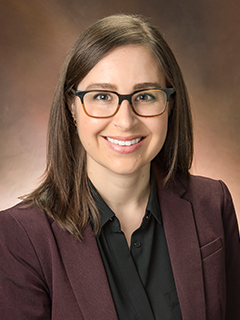
Family Partnerships to Support Cultural Humility in Behavioral Intervention Research
Ariel Williamson, PhD, DBSM
Dr. Ariel A. Williamson is currently assistant professor of psychiatry and pediatrics at Children’s Hospital of Philadelphia and the University of Pennsylvania Perelman School of Medicine. In fall 2023, Ariel A. Williamson will join the University of Oregon’s Ballmer Institute for Children’s Behavioral Health in Portland, Oregon, as an Assistant Professor. Dr. Williamson is a licensed clinical psychologist and Diplomat in Behavioral Sleep Medicine (DBSM) with expertise in pediatric sleep health inequities and behavioral interventions. Her research uses a socio-ecological approach to understand how multiple factors (child; family; school; neighborhood; environmental and socio-cultural context) contribute to child sleep problems, inequities, and developmental outcomes. Dr. Williamson’s intervention research applies implementation science principles and community-engaged methods to promote pediatric sleep health and treat sleep problems in primary care and in partnership with community organizations. Dr. Williamson is a board member for the Philadelphia-area Beds for Kids program, which provides beds, bedding, and sleep education for children living in poverty and without an individual bed. She is also a sleep expert for the Pediatric Sleep Council, a free, evidence-based resource with information about early childhood sleep for families and clinicians. Dr. Williamson is a member of the Society for Pediatric Research and an Associate Editor for Sleep Health: the official journal of the National Sleep Foundation. Her research has been funded by NICHD, NHLBI, the Sleep Research Society Foundation, and the American Academy of Sleep Medicine Foundation.
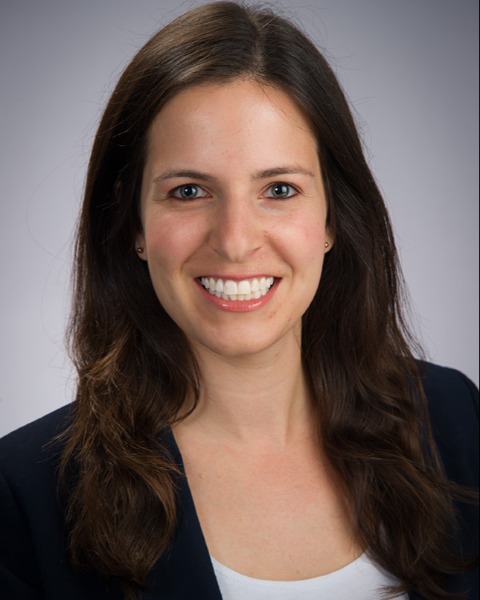
Developing and Delivering Culturally Sensitive and Inclusive Digital Health Interventions: Lessons
Learned and What Comes Next
Kimberly Canter, PhD
Kimberly Canter, Ph.D., is a Pediatric Psychologist, Senior Research Scientist in the Nemours Center for Healthcare Delivery Science, and Associate Professor of Pediatrics at Thomas Jefferson University. She is also Core Director of the Intervention Methodology: Provision and Connection through Technology (IMPACT) Research Core of the Research Expanding Access to Child Health (REACH) Center, a newly funded Center of Biomedical Research Excellence (COBRE) based at Nemours Children's Health in Delaware. Dr. Canter received her Ph.D. from the Clinical Child Psychology Program at the University of Kansas in 2015, and completed her clinical internship and postdoctoral research fellowship at Nemours Children's Health. Her research focuses on developing and implementing evidence-based, technology-enabled psychosocial interventions to decrease traumatic medical stress and enhance coping skills for children with chronic illnesses and their families. She has a specific interest in and commitment to interventions that are wide-reaching and helpful in terms of increasing access and reducing healthcare disparities among underserved populations. Dr. Canter has received funding from a number of organizations, including the National Cancer Institute, the American Cancer Society, Alex’s Lemonade Stand Foundation, to support this work.
Session 2: 12:30pm - 2:30pm
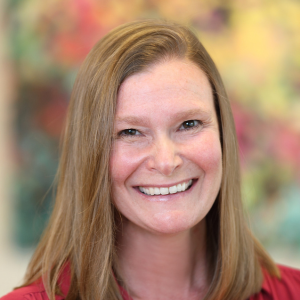
Innovations in Preventing and Treating Pediatric Chronic Pain: Technology, Collaboration, and Pizza
Tonya Palermo, PhD
12:30pm - 1:30pm
Dr. Tonya Palermo is a pediatric psychologist and Professor of Anesthesiology and Pain Medicine at University of Washington with adjunct appointments in Pediatrics and Psychiatry. She holds the Hughes M. and Katherine Blake Endowed Professorship in Health Psychology. Dr. Palermo serves as Associate Director of the Center for Child Health, Behavior and Development at Seattle Children’s Research Institute. She serves as Vice Chair for Research for the UW Department of Anesthesiology & Pain Medicine. She is also the Editor-in-Chief of the Journal of Pain. At SCRI, Dr. Palermo directs the Pediatric Pain & Sleep Innovations Lab that aims to improve the lives of children with pain and their families. Her longstanding NIH funded research program focuses on risk and resilience factors for developing chronic pain, development and implementation of low cost and accessible digital health psychological interventions (Internet interventions and smartphone applications) for management of pain in youth, and the interrelationship of sleep and pain. Dr. Palermo has published over 300 peer-reviewed articles and two books on cognitive-behavioral therapy for chronic pain in children and adolescents. Dr. Palermo directs the UW T32 anesthesiology postdoctoral training program and is active in training clinician-scientists at the postdoctoral and junior faculty level.
Pediatric Psychologists: Uniquely Positioned to Eliminate Pain Inequities for Racialized
Children
Anna Hood, PhD
Dr Anna Hood is a Lecturer (Assistant Professor) in Psychology in the Manchester Centre for Health Psychology, Division of Psychology and Mental Health at the University of Manchester. She is a dual UK/US citizen and is a licensed pediatric clinical psychologist in the US, and HCPC registered in the UK. Anna’s graduate and clinical training were completed in the US and UK at Washington University in St. Louis, Children’s Minnesota, Cincinnati Children’s Hospital Medical Center, and UCL, Great Ormond Street Institute of Child Health. Her research focuses on the biological, psychological, and social challenges faced by pediatric patients living with pain. Her work has a particular focus on children and young adults with sickle cell disease and aims to 1) promote self-management and patient engagement, 2) co-develop behavioral and cognitive interventions, and 3) include an anti-racism framework in her research, psychological treatments, and clinical care to eliminate inequities for people living with pain.
Building the Translational Research Bridge in Adolescent Endometriosis Associated Pain: The Role of the Pediatric Psychologist
Christine Sieberg, PhD, EdM, MA
Dr. Christine Sieberg directs the Biobehavioral Pain Innovations Lab and Co-Directs the Pain and Affective Neuroscience Center at Boston Children’s Hospital. She is also an Associate Professor in the Department of Psychiatry at Harvard Medical School. Dr. Sieberg has built a research foundation in the biobehavioral aspects of chronic pain, with a focus in chronic postsurgical pain and endometriosis-associated pain, as well as in the treatment and assessment of chronic pain across the lifespan. She has been involved in Division 54 since graduate school and currently serves as a board member for the European Pediatric Psychology Network.
Session 3: 3:00pm - 5:00pm

Self-Management and the Transfer of Medical Responsibility from Parent to Child in Youth with Spina Bifida: Implications for the Transition to Adult Health Care
Grayson Holmbeck, PhD
3:00pm - 4:00pm
Dr. Grayson Holmbeck is Professor of Clinical Psychology in the Department of Psychology at Loyola University Chicago. His research interests include the following: adaptation to physical disabilities and chronic illness during adolescence, developmental psychopathology of adolescence, family relationships during early and late adolescence, and statistical applications in psychology. He is currently a PI on two grants from the National Institute of Nursing Research (NINR) and Kiwanis Neuroscience Research Foundation for studies of youth and young adults with spina bifida. The NINR grant is a longitudinal study of adolescents and young adults with spina bifida which focuses on self-management and the transition from pediatric to adult health care, as well as related family, psychosocial, and neuropsychological functioning. The second grant examines the effectiveness of a camp-based independence program for children, adolescents, and young adults with spina bifida. Dr. Holmbeck was the Editor of the Journal of Pediatric Psychology from 2013-2017. He has received the following awards: the Graduate Faculty Member of the Year award from Loyola University Chicago (1999), the Logan Wright Distinguished Research Award from Division 54 of the American Psychological Association (2005), the Outstanding Health Care Achievement Award from the Spina Bifida Association of America (2007), the Martin P. Levin Mentorship Award from Division 54 of the American Psychological Association (2009), and the Distinguished Service Award for Clinical Scholarship from the Illinois Psychological Association (2017). More information about his research can be found at the following link: https://luc.edu/psychology/people/faculty/facultystaff/graysonholmbeck/
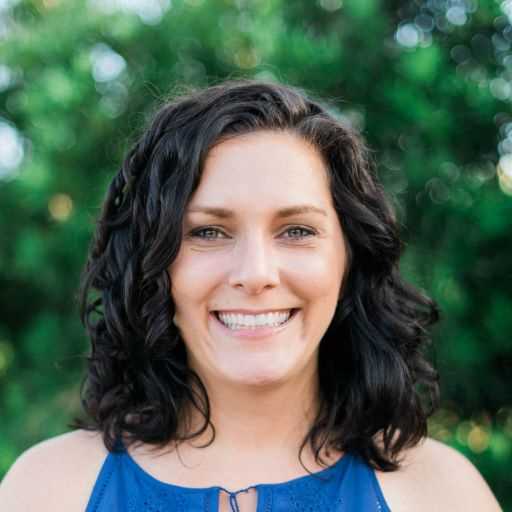 Transition in Type 1 Diabetes: Strengths-Based Approaches to Research, Clinic-Based
Transition in Type 1 Diabetes: Strengths-Based Approaches to Research, Clinic-Based
Preparation Programs, and Outreach
Marisa Hilliard, PhD
Marisa Hilliard, PhD, is an Associate Professor of Pediatrics at Baylor College of Medicine and Texas Children’s Hospital. She directs the Resilience and Diabetes (RAD) Behavioral Research Lab, which primarily focuses on the application of positive psychology and the science of health behavior change to improve psychosocial, behavioral, and health outcomes of youth and young adults with type 1 diabetes and their families. With NIH and foundation funding, her research program includes intervention studies, measure development, and qualitative research.
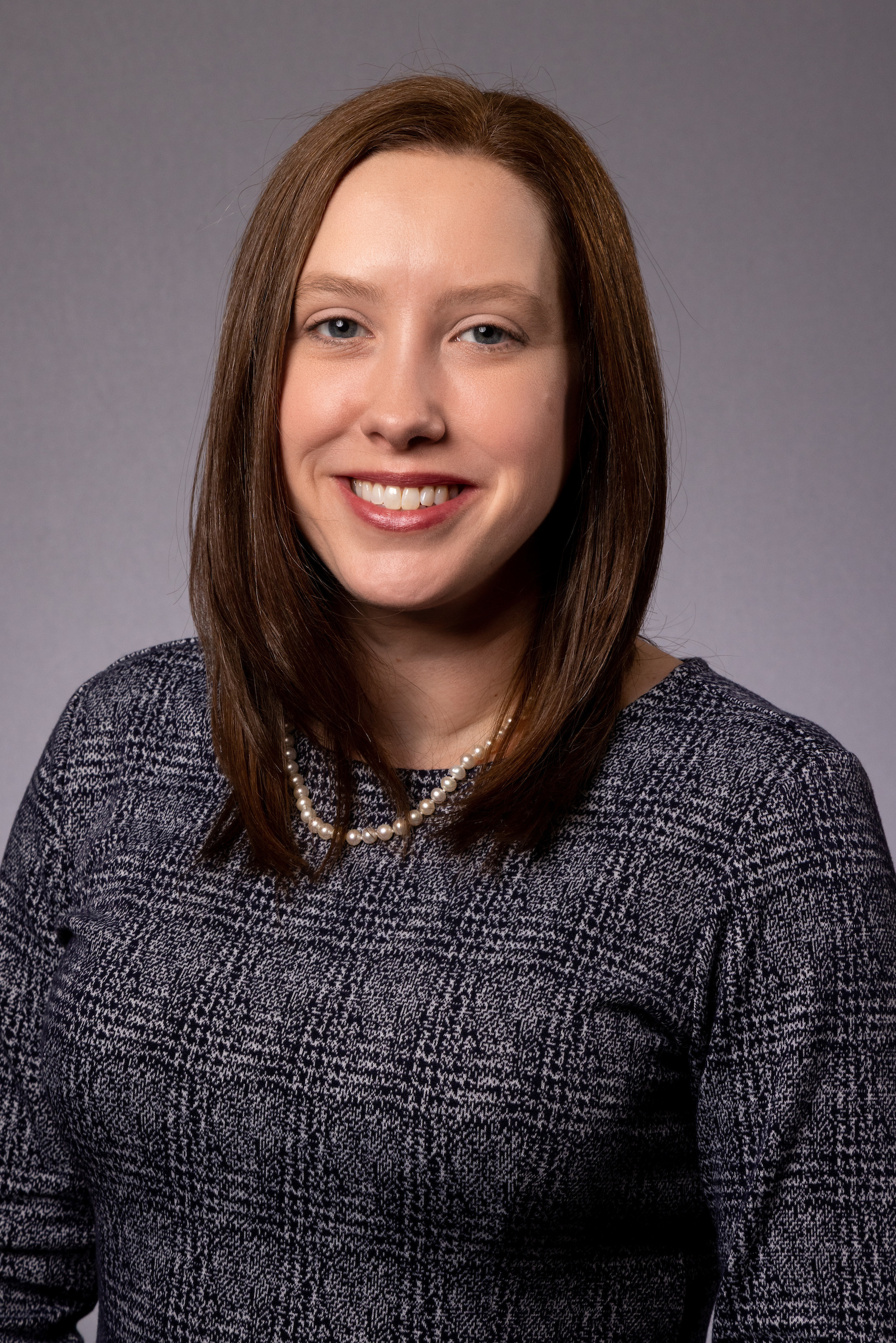
Building and Evaluating a Digital Tool to Improve Self-Management in the Transition to Adult Health Care for Childhood Cancer Survivors
Katie Devine, PhD, MPH
Katie Devine is an Associate Professor and Chief of the Pediatric Population Science, Outcomes, and Disparities Research Section in the Division of Pediatric Hematology/Oncology at the Rutgers Cancer Institute of New Jersey. She is a clinical psychologist with a background in human development. She earned her PhD in clinical psychology from the University of Georgia and a Master’s of Public Health degree from the University of Rochester Medical Center. Her research focuses on the psychosocial aspects of pediatric, adolescent, and young adult cancer survivorship, including patient and family adaptation to illness, adherence to medical recommendations and survivorship care, transitions in care, and health promotion for survivors. She has strong interest in using technology to deliver behavioral interventions. Her work has been funded by the National Cancer Institute since 2014.
Improving the Reach of Pediatric Psychology through Innovative Research Applications
Pediatric psychologists are frequently asked to address the complex needs of patients and families in a range of settings, requiring the ability to innovate, adapt, and collaborate. This year’s fall conference will highlight pediatric psychologists who are using innovative conceptual models, research methods, collaborations, and science-to-practice applications to meet the needs of diverse groups of patients and families. Our hope is to inspire you to consider your own innovative practices and to incorporate new ideas to bring back to your work. This conference will showcase our members work and will offer the opportunity to increase your competence, knowledge, and skills related to design and innovation in behavioral health intervention and evidence-based healthcare. This conference will of interest to pediatric psychologists at different stages of their careers and trainees who are engaged in research, clinical practice, and education/training.
SPP Fall Conference Schedule
Session 1: 10:00am to noon eastern time
Student Introduction (Ariel Blakey)
10:00-11:00am: Plenary: Lori Crosby, PsyD (45 minute presentation, 15 minute Q&A; moderated by Science & Practice Committee Member)
Title: Applying Anti-Racism, Community Engagement and Design-Thinking Strategies to Behavioral Science
Learning Objectives:
- Discuss how an anti-racism strategies can be applied to a behavioral science study.
- Describe at least one way design-thinking can enhance behavioral science.
11:00-11:20am: Symposia: Ariel Williamson, PhD
Title: Family Partnerships to Support Cultural Humility in Behavioral Intervention Research
Learning Objectives:
- To describe methods to build partnerships with families as expert collaborators in research.
- To apply health equity-informed implementation science methods and community-engaged strategies to intervention adaptation and evaluation research.
- To discuss the role of pediatric psychologists and researchers in building meaningful relationships with family collaborators.
11:20-11:40am: Symposia: Kim Canter, PhD
Title: Developing and Delivering Culturally Sensitive and Inclusive Digital Health Interventions: Lessons Learned and What Comes Next
Learning Objectives:
- Attendees will be able to identify best strategies from the literature for designing culturally sensitive psychosocial interventions.
- Attendees will apply culturally sensitive psychosocial design strategies to their research and/or clinical practice.
- Attendees will discuss how to build a team to conduct high-quality cultural adaptation research.
11:40am-noon: Group Q&A (moderated by Dr. Crosby)
Session 2: 12:30 to 2:30pm eastern time
Student Introduction (Ellie Choate)
12:30-1:30pm Plenary: Tonya Palermo, PhD (45 minute presentation, 15 minute Q&A; moderated by Science & Practice Committee Member)
Title: Innovations in Preventing and Treating Pediatric Chronic Pain: Technology, Collaboration, and Pizza
Learning Objectives:
- Identify steps to developing new interventions for pediatric pain.
- Summarize findings from clinical trials of digital health interventions for pediatric pain.
- Identify opportunities to promote inclusion, diversity, and equity in pediatric pain science.
1:30-1:50pm: Symposia: Anna Hood, PhD
Title: Pediatric Psychologists: Uniquely Positioned to Eliminate Pain Inequities for Racialized Children
Learning Objectives:
- Describe the context and the breadth of pain inequities for children from racialized groups, using the experiences of children living with sickle cell disease as an exemplar.
- Describe conceptual models to understand how racism and trauma interact to maintain pain inequities.
- Discuss specific, actionable, antiracism strategies, including cultural humility, for pediatric psychologists to utilise and eliminate pain equities in clinical practice and research.
1:50-2:10pm: Symposia: Christine Sieberg, PhD
Title: Building the Translational Research Bridge in Adolescent Endometriosis Associated Pain: The Role of the Pediatric Psychologist
Learning Objectives:
- Identify their “niche” and how to apply it to translational research in pediatrics.
- Identify at least two strategies to “get started” in translational research.
- Identify the biobehavioral mechanisms that may contribute to endometriosis-associated pain.
2:10-2:30pm: Group Q&A (moderated by Dr. Palermo)
Session 3: 3:00 to 5:00pm eastern time
Student Introduction (Isabella Sereno)
3:00-4:00pm: Plenary: Grayson Holmbeck, PhD (45 minute presentation, 15 minute Q&A; moderated by Science & Practice Committee Member)
Title: Self-Management and the Transfer of Medical Responsibility from Parent to Child in Youth with Spina Bifida: Implications for the Transition to Adult Health Care
Learning Objectives:
- Explain the process by which medical responsibility is transferred from parent to youth with spina bifida and identify factors associated with this transfer process.
- Explain the complexity of the transition to adult health care in spina bifida and identify strategies to assess transition readiness and post-transition outcomes.
4:00-4:20pm: Symposia: Marisa Hilliard, PhD
Title: Transition in Type 1 Diabetes: Strengths-based Approaches to Research, Clinic-based Preparation Programs, and Outreach
Learning Objectives:
- Discuss challenges and strategies to build a multidisciplinary transition program.
- Describe ways to integrate a strengths-based perspective to promote successful transfer from pediatric to adult care.
4:20-4:40pm: Symposia: Katie Devine, PhD
Title: Building and Evaluating a Digital Tool to Improve Self-Management in the Transition to Adult Health Care for Childhood Cancer Survivors
Learning Objectives:
- Identify barriers to the transition from parent-guided to adult self-management of survivorship care for childhood cancer survivors.
- Describe the rationale for incorporating user input in the design of a digital intervention to improve self-management.
- Explain how feasibility studies inform intervention refinement and planning, using an efficacy trial of a digital self-management and peer mentoring intervention for childhood cancer survivors as a model.
4:40-5:00pm: Group Q&A (moderated by Dr. Holmbeck)
Session 1: 10:00am - 12:00pm
Lori Crosby, PsyD (Plenary)
Applying Anti-Racism, Community Engagement and Design-Thinking Strategies to Behavioral Science
Learning Objectives:
- Discuss how an anti-racism strategies can be applied to a behavioral science study
- Describe at least one way design-thinking can enhance behavioral science
Ariel Williamson, PhD, DBSM
Family Partnerships to Support Cultural Humility in Behavioral Intervention Research
Learning Objectives:Accessibility
- To describe methods to build partnerships with families as expert collaborators in research.
- To apply health equity-informed implementation science methods and community-engaged strategies to intervention adaptation and evaluation research.
- To discuss the role of pediatric psychologists and researchers in building meaningful relationships with family collaborators.
Kimberly Canter, PhD
Developing and Delivering Culturally Sensitive and Inclusive Digital Health Interventions: Lessons Learned and What Comes Next
Learning Objectives:
- Attendees will be able to identify best strategies from the literature for designing culturally sensitive psychosocial interventions.
- Attendees will apply culturally sensitive psychosocial design strategies to their research and/or clinical practice.
- Attendees will discuss how to build a team to conduct high-quality cultural adaptation research.
Session 2: 12:30pm - 2:30pm
Tonya Palermo, PhD (Plenary)
Innovations in Preventing and Treating Pediatric Chronic Pain: Technology, Collaboration, and Pizza
Learning Objectives:
- Identify steps to developing new interventions for pediatric pain
- Summarize findings from clinical trials of digital health interventions for pediatric pain
- Identify opportunities to promote inclusion, diversity, and equity in pediatric pain science
Anna Hood, PhD
Pediatric Psychologists: Uniquely Positioned to Eliminate Pain Inequities for Racialized Children
Leaning Objectives:
- Describe the context and the breadth of pain inequities for children from racialized groups, using the experiences of children living with sickle cell disease as an exemplar.
- Describe conceptual models to understand how racism and trauma interact to maintain pain inequities.
- Discuss specific, actionable, antiracism strategies, including cultural humility, for pediatric psychologists to utilize and eliminate pain equities in clinical practice and research.
Christine Sieberg, PhD, EdM, MA
Building the Translational Research Bridge in Adolescent Endometriosis Associated Pain: The Role of the Pediatric Psychologist
Learning Objectives:
- Identify their “niche” and how to apply it to translational research in pediatrics.
- Identify at least two strategies to “get started” in translational research.
- Identify the biobehavioral mechanisms that may contribute to endometriosis-associated pain.
Session 3: 3:00pm - 5:00pm
Grayson Holmbeck, PhD (Plenary)
Self-Management and the Transfer of Medical Responsibility from Parent to Child in Youth with Spina Bifida: Implications for the Transition to Adult Health Care
Learning Objectives:
- Explain the process by which medical responsibility is transferred from parent to youth with spina bifida and identify factors associated with this transfer process.
- Explain the complexity of the transition to adult health care in spina bifida and identify strategies to assess transition readiness and post-transition outcomes.
Marisa Hilliard, PhD
Transition in Type 1 Diabetes: Strengths-Based Approaches to Research, Clinic-Based Preparation Programs, and Outreach
Learning Objectives:
- Discuss challenges and strategies to build a multidisciplinary transition program.
- Describe ways to integrate a strengths-based perspective to promote successful transfer from pediatric to adult care.
Katie Devine, PhD, MPH
Building and Evaluating a Digital Tool to Improve Self-Management in the Transition to Adult Health Care for
Childhood Cancer Survivors
Learning Objectives:
- Identify barriers to the transition from parent-guided to adult self-management of survivorship care for childhood cancer survivors.
- Describe the rationale for incorporating user input in the design of a digital intervention to improve self-management.
- Explain how feasibility studies inform intervention refinement and planning, using an efficacy trial of a digital self-management and peer mentoring intervention for childhood cancer survivors as a model.
The Society of Pediatric Psychology Annual Fall Virtual Conference Inclusion Scholarship
Now Accepting Applications!
Calling all SPP Student Members!
The Society of Pediatric Psychology Annual Fall Virtual Conference 2023 is pleased to announce a request for applications for the SPP VFC23 Inclusion Scholarship. This award is intended to provide financial support to enable post baccalaureate and graduate students from underrepresented and/or marginalized backgrounds the opportunity to attend the conference. The SPP VFC23 Inclusion Scholarship covers registration costs in full. The award will support up to 10 eligible trainees.
This year, we decided to launch an infographics contest to help disseminate innovations in pediatric psychology in relation to the conference theme “Improving the Reach of Pediatric Psychology Through Innovative Research Applications” throughout the conference. We will be featuring your work! Winning infographics will have their work featured on our conference website and social media.
Eligibility:
- Applicant must be a trainee at any stage of training from post baccalaureate through postdoctoral fellows. Trainees outside the USA are eligible to apply.
- Applicant is a current student member of the Society of Pediatric Psychology (Join/renew your membership here before submitting your application).
- Applicant must be from a historically disadvantaged or underrepresented background.
- The applicant is conducting work/working on a project that clearly relates to the conference theme.
Application Due Date: September 19th, 2023
Notification Date: September 25th, 2023
Awardees will receive instructions about registration upon notification. Please DO NOT register prior to the notification date.
Infographic Design Details:
- Design an infographic to describe your area of research/project or your supervisor’s area of work related to this year’s conference theme “Improving the Reach of Pediatric Psychology Through Innovative Research Applications”.
- The infographics will be judged on the overall appearance, quality and clarity of information disseminated and scientific accuracy.
- Have fun!
- Please submit an 8x10”, color, font size between 9-12pt PDF.
- Research Infographic Examples
- Helpful Resources for making an infographic
How to Apply:
Scholarship application form. Please review the instructions and complete the application form. Please include one letter of support from your supervisor/mentor, a brief statement describing your eligibility for this scholarship and upload a copy of your infographic design in a PDF format.
Good luck and for questions please contact Dr. Alyssa Schlenz SPP VFC Conference Scientific Chair Alyssa.Schlenz@childrenscolorado.org and/or Dr. Sukhpreet Tamana (SPP Science and Committee Chair) sukhpreet.tamana@bcchr.ca
Continuing Education
Attendees who qualified for CE were sent a link to claim CE on Friday, September 29. Please contact info@pedpsych.org if you did not receive the link.
Society of Pediatric Psychology/SPP
2023 Society of Pediatric Psychology Fall Virtual Conference
September 29, 2023
Online
Joint Accreditation Statement

In support of improving patient care, this activity has been planned and implemented by Amedco LLC and Society of Pediatric Psychology. Amedco LLC is jointly accredited by the Accreditation Council for Continuing Medical Education (ACCME), the Accreditation Council for Pharmacy Education (ACPE), and the American Nurses Credentialing Center (ANCC), to provide continuing education for the healthcare team.
Amedco Joint Accreditation #4008163.
Psychologists (APA) Credit Designation
 This course is co-sponsored by Amedco and Society of Pediatric Psychology. Amedco is approved by the American Psychological Association to sponsor continuing education for psychologists. Amedco maintains responsibility for this program and its content. 6.00 hours.
This course is co-sponsored by Amedco and Society of Pediatric Psychology. Amedco is approved by the American Psychological Association to sponsor continuing education for psychologists. Amedco maintains responsibility for this program and its content. 6.00 hours.
The following state boards accept courses from APA providers for Counselors: AK, AR, AZ, CA, CO, CT, DC, DE, FL, GA, HI, IA, ID, IL, IN, KS, KY, MD, ME, MO, NC, ND, NH, NE, NJ, NM, NV, OK*, OR, PA, RI, SC, SD, TN, TX, UT, VA, WI, WY
MI: No CE requirements.
*OK: Accepts APA credit for live, in-person activities but not for ethics and/or online courses.
The following state boards accept courses from APA providers for MFTs: AK, AR, AZ, CA, CO, CT, DE, FL, GA, IA, ID, IN, KS, MD, ME, MO, NE, NC, NH, NJ, NM, NV, OK*, OR, PA, RI, SC, SD, TN, TX, UT, VA, WA, WDC, WI, WY
AL MFTs: Credits authorized by NBCC or any other state licensing agency will be accepted.
MA MFTs: Participants can self-submit courses not approved by the MAMFT board for review.
The following state boards accept courses from APA providers for Addictions Professionals: AK, AR, CO, CT, DC, DE, GA, IA, IN, KS, LA, MD, MO, MT, NC, ND, NE, NJ, NM, NY (held outside NY ONLY), OK*, OR, SC, UT, WA, WI, WY
The following state boards accept courses from APA providers for Social Workers: AK, AR, AZ, CA, CO, DE, FL, GA, ID, IN, KY, ME, MN, MO, NE, NH, NM, OR, PA, VT, WI, WY
New York Board for Psychology (NY PSY)
Amedco is recognized by the New York State Education Department’s State Board for Psychology as an approved provider of continuing education for licensed psychologists #PSY-0031. 6.00 hours.
Student Mentoring Event at the 2023 Fall Virtual Conference
This event aims to be an opportunity for SPP students and trainees to meet and network with leaders in the field of pediatric psychology. The Mentoring Event will be held on:
Thursday, September 28th, from 1pm - 2pm EST (12pm-1pm CST).
Please note that this is on the day prior to the SPP Virtual Conference.
The Mentoring Event is being held the day before the conference with the intention of trainees and mentors to network prior to the event. This will also serve as a preview of the enriching experiences offered on the day of the conference
If you plan to attend the 2023 SPP Virtual Conference and are interested in participating in the Mentoring Event, please complete this short form (3 min) by Friday, September 15th, to register for this event:
Please note that there will be limited capacity for this event, with priority given to those who sign up first. Following close to the event, we will match participating mentors with mentees using the information gathered from the survey. Efforts will be made to group students at similar training stages.
You can contact the Student Advisory Board (SAB) Mentoring Chair, Isabella Sereno (sereno.is@northeastern.edu), or the Student Representative, Perry Catlin (perry.catlin@marquette.edu), with any questions.




